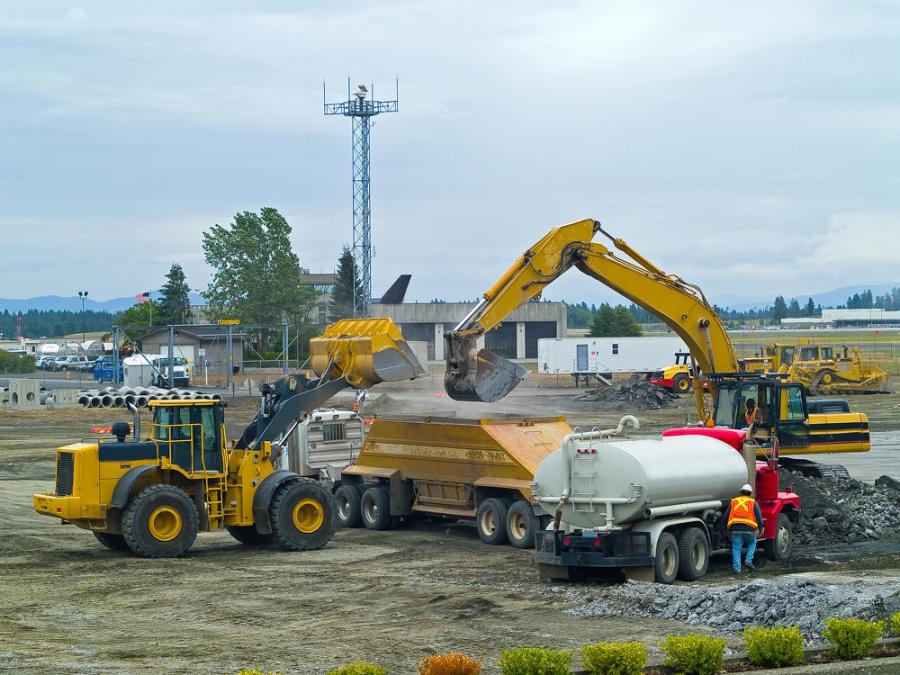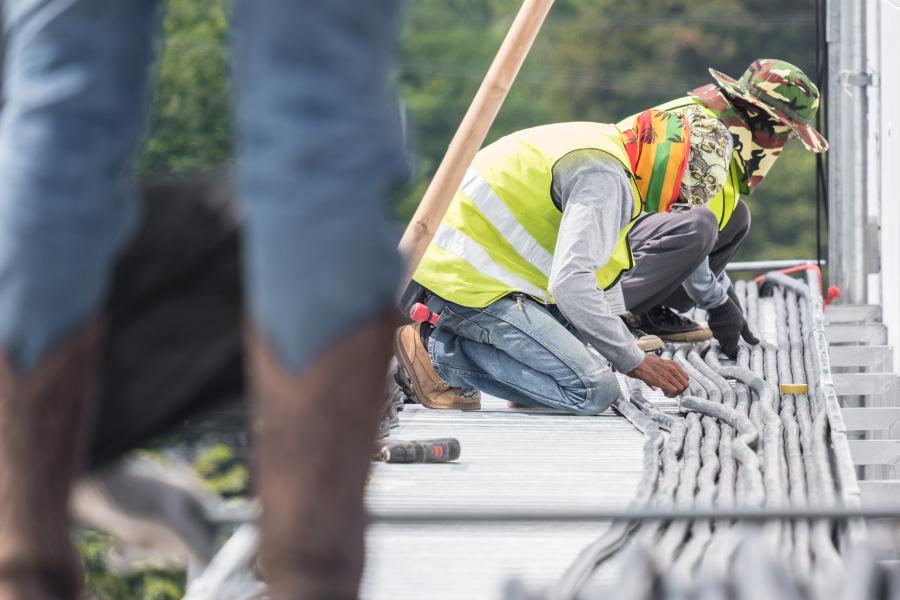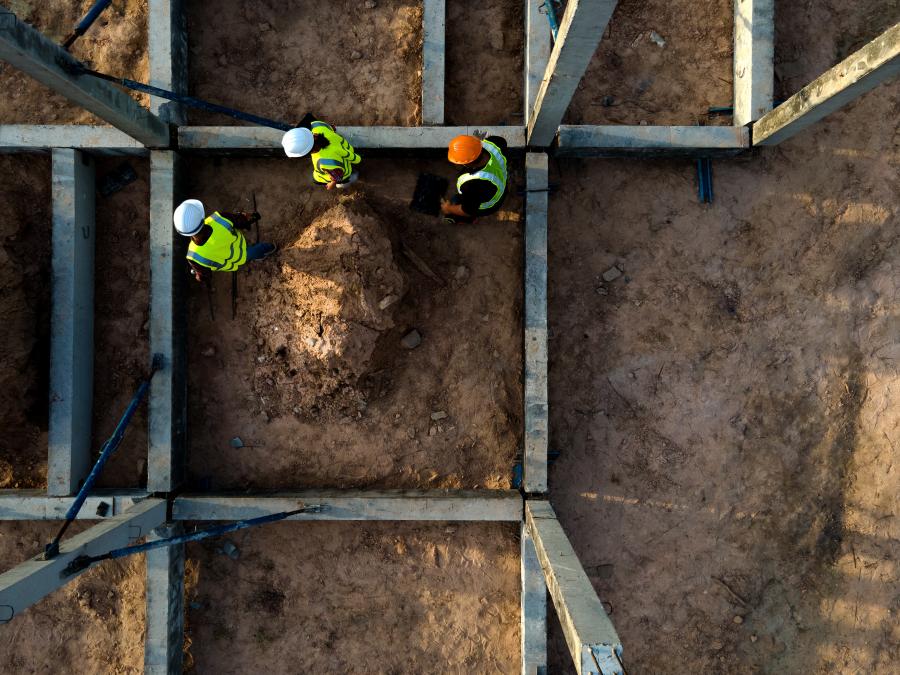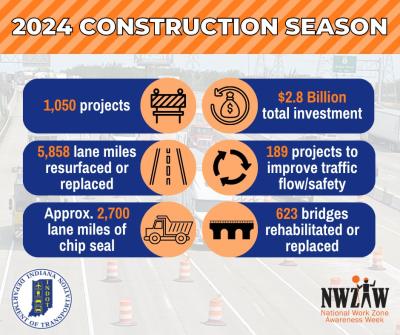President Biden’s mandate will make it harder for general contractors to subcontract with small, disadvantaged businesses, said the AGC.
The Biden administration has a plan to create a highly skilled diverse workforce to complete infrastructure projects over the next decade. It involves diverting federal funds toward contractors and grant applicants who partner with labor organizations. Industry groups and labor unions can't see eye to eye on how that will happen.
Biden's idea is to encourage job training programs in certain sectors in order to benefit communities and groups lagging in male-dominated trade industries.
Professional organizations such as AGC and ABC have been vocal in their opposition to the concept. They believe some of the methods Biden plans to achieve his goals will actually limit access for women- and minority-owned businesses.
Unions maintain workers already have access to training as well as representation in negotiating benefits such as childcare through registered apprenticeships.
Melissa Wells of the North America's Building Trades Unions (NABTU) believes industry needs to "get serious" about supporting groups who have traditionally been overlooked.
"Whether it's historically marginalized communities, people of color, women or individuals that have been in contact with the justice system, we have to provide them support," said Wells, head of diversity for the unions.
A Biden executive order seeks to impose project labor agreements (PLAs) on all federal construction projects worth at least $35 million as a means to do that.
Responding to an AGC survey, 73 percent of contractors are currently bidding on federal construction projects in that category.
Yet, the same number report they would not bid on those projects if a PLA were required.
"The use of a PLA can provide structure and stability to large construction projects," said the White House. "PLAs also help ensure compliance with laws and regulations governing workplace safety and health, equal employment opportunity and labor and employment standards."
AGC survey respondents see it differently.
"PLAs require every general contractor or subcontractor to negotiate with or become a party to an agreement with one or more union," said the AGC.
This mandate will make it harder for general contractors to subcontract with small, disadvantaged businesses, said 82 percent of firms surveyed.
"These groups typically are not accustomed or prepared to operate on a union basis," the association maintains.
Seeking Labor Solutions
The Trump administration wanted to raise the numbers in the talent pool, said former head of the DOL's training division, according to a Bloomberg article. "We were trying to move away from the idea that you had to be a registered apprentice in order to get into an apprenticeship program," said John Pallasch. "We just wanted to get more qualified people into the talent pipeline so that business and industry had the skilled labor that it needs."
The Biden administration will focus on bolstering DOL's 80-year-old registered apprenticeship programs, which has tougher standards for participants.
Building trades unions and the Biden administration thought the industry-led IRAPs programs would undercut their registered apprenticeships.
They believed workers could claim to be apprentices, but not have the full, complete safety and skills training or guaranteed wages provided by registered programs.
"The problem with IRAPs is no safety standards, no progressive wages," said Tom Kriger, NABTU director of education and research. "It was kind of very loose and very ill-defined."
Industry-run programs typically only provide training for a specific skill, limiting a worker's ability to find future jobs, he added.
Registered apprenticeships shouldn't be the only pathway for job training, said the ABC.
The registered system can be overly competitive, making it difficult for workers with other responsibilities to prepare for the testing required to qualify. And it can have too many requirements to attract businesses to participate, according to Greg Sizemore, ABC vice president of health, safety, environment and workforce development.
The organization found that fewer than 25,000 workers completed construction job training under DOL's multi-year registered apprenticeship programs in fiscal 2021.
"Clearly, the government-registered apprenticeship system is not meeting the industry's need for skilled labor," said Ben Brubec, ABC vice president of regulatory, labor and state affairs.
The system "cannot be the only solution supported by government to meet industry demands and build a diverse workforce," he added
PLAs guarantee a contractor will enter into collective bargaining agreements with at least one union covering the duration of the project.
Biden's February executive order directed federal agencies to use such agreements on construction projects above $35 million.
Unions and Democrats hold up PLAs as a way to negotiate well-paying jobs and secure benefits to support workers who are underrepresented in the trades, like women.
"There's PLAs that have language around helping support, and fund childcare," NABTU's Wells said. "I think there's more room for growth using that pathway."
But industry groups and Republicans say that PLAs favor unions and make it difficult for smaller, local and minority-owned businesses that don't have strong ties to unions or are unable to meet the requirements outlined in the agreement.
"And by the time they do, the truth of the matter is, the project will be left with somebody else," ABC's Sizemore said. "Would a government-mandated PLA result in a decrease in hiring of minority and women owned businesses, veteran owned businesses? We're saying absolutely, it would."
Reasons to Doubt
The Department of Labor announced a summer-long "Talent Pipeline Challenge" calling on employers and local governments to work with organizations that offer job training, like unions and seek out women and workers of color.
The DOL also is rescinding the Trump administration's Industry-Recognized Apprenticeship Program or IRAP.
The program allowed companies to create their own training programs that could be monitored by third parties,
The Trump DOL believed this would expand apprenticeships in under-represented fields not a part of the DOL's traditional registered apprenticeship model.
The construction industry believes rolling back a Trump administration industry-based training model will tilt funding in favor of labor organizations and exclude a large share of the trades workforce that isn't unionized.
Only 12.6 percent of construction workers were union members in 2021, BLS data shows.
"There's a large push by the administration and it's very clear that they they want to grow the union workforce," said Sizemore. "The vast majority of Americans working in the construction industry say, ‘I choose to work in a merit shop environment that allows me to get paid based upon what I know or the value that I bring to the industry, as opposed to what somebody has negotiated for me in a contract.'"
Nearly three-quarters of federal contractors said they will stop bidding on federal projects if the Biden administration were to impose PLAs.
The AGC's survey also indicated the federal mandate will make it harder for contractors to partner with small, veteran, minority or disabled-owned firms.
The survey found that in addition to limiting competition for federal projects, imposing PLAs will challenge firms to find enough workers to hire.
Nearly 40 percent of the survey respondents operate under a collective bargaining agreement, and 83 percent said there are not enough union workers to guarantee completion of the project on time and on budget.
Among firms that have worked on a project that involved a government-mandated PLA, 67 percent said the agreement made it harder to find workers.
"Having fewer firms competing for federal projects undermines the president's claim that his executive order will make federal construction more efficient and cost-effective," said Stephen E. Sandherr, CEO of the AGC. "Worse, these PLAs will hurt minority, disadvantaged and veteran-owned businesses at a time when many of them are still recovering from the economic impacts of the pandemic."
Association officials are urging the Biden administration to abandon imposition of PLAs on most federal construction projects.
They are sharing details from the survey with the administration as they outline details for how the president's executive order will limit competition, impede efficiency in federal procurement, and harm disadvantaged business enterprises.
"This executive order will turn Build Back Better into build back fewer: fewer firms, hiring fewer people to build fewer projects," Sandherr added.
Ultimately, Biden wants to see his promise for an equitable recovery, while repairing infrastructure, delivered. Industry wants that as well, but the two sides disagree on how to get there.
"Hardworking taxpayers deserve efficient and effective policies that will encourage all qualified contractors to compete to build long-lasting, quality projects at the best price," said ABC. "Government-mandated project labor agreements discourage quality contractors and the more than 87 percent of U.S. construction workers who choose to not join a union from bidding and working on projects in their own communities." CEG
Today's top stories





















